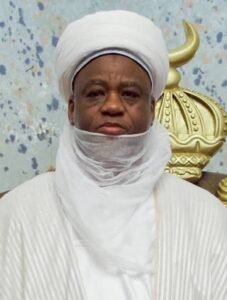Yorùbá Elders Decry Afenifere’s Stance on MURIC Comments, Urge Religious Tolerance and Responsible Leadership

The Ẹgbẹ́ Àgbà Ìtẹ̀síwájú Yorùbá, a prominent Yoruba elder council, has issued a strong-worded press release expressing deep concern over Afenifere’s recent response to the comments made by Professor Ishaq Akintola, Executive Director of the Muslim Rights Concern (MURIC), regarding the demolition of mosques in Ekiti State.
The group, in a statement signed by Agbaakin Tunde Adeleke (Worldwide President), Pa Tafa Olawuyi (Secretary General), and High Chief Kola Oriolowo (Publicity Secretary), described Afenifere’s statement as disappointing and alarmingly unbalanced, stressing that it lacked the “wisdom, neutrality, and fairness” expected from a body that claims to represent the interests of all Yorùbá people.
“It is utterly hypocritical and unbecoming for a socio-cultural group of Afenifere’s stature to call for security surveillance on a fellow Yoruba man in the caliber of Prof. Akintola simply for expressing a legitimate concern on behalf of his religious community,” the statement read.
The elders particularly criticized the perceived justification of the mosque demolitions through references to the establishment of Shariah Arbitration Panels, which they emphasized are intended only for “willing Muslim adherents.”
They questioned the logic behind such reasoning, asking, “After all, there are problems in some Yorùbá communities that have not caught their attention for response. This makes one wonder what motivates Afenifere’s actions.”
Ẹgbẹ́ Àgbà Ìtẹ̀síwájú Yorùbá warned that such rhetoric is divisive and undermines the pluralistic and tolerant values that define the Yorùbá nation. “We must remind Afenifere and all who speak in the name of the Yorùbá people that our culture is rooted in pluralism, respect, and accommodation. The Yorùbá nation is not monolithic in faith, and any attempt to enforce a narrow religious worldview on our people undermines the very essence of our unity and diversity,” they said.
The group called for a return to “constructive dialogue, balance, and genuine commitment to justice” in public discourse, especially from organizations with influence in the region.
“As elders and stakeholders in the Yorùbá future, our utterances must heal—not wound, unite—not divide,” the statement concluded.





